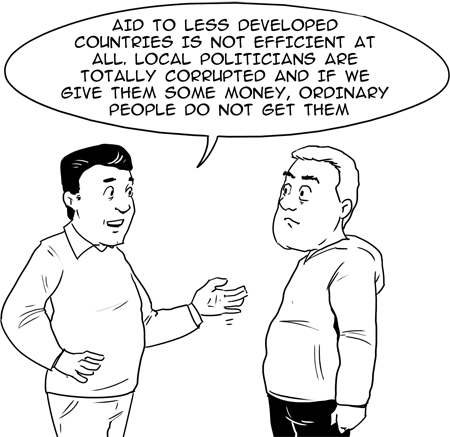Critical thinking
This topic shows you how to think critically, find hidden contexts and read between the lines
Red herring
This technique does not even try to find reason which could possibly support the conclusion of an argument. In spite of that it takes attention to another question, unrelated to the original one. And why is it called red herring? One of the explanations is that the name comes from the prisoners' common practice that they covered themselves by peppered smoked herring to avoid dogs to smell them when escaping from prison.
Argument using this manipulative technique is of very simple scenario:
- We are discussing topic A
- Our opponent does not have sufficient argument, and so he tries to raise topic B persuading that it is related to A (while it is not)
- Topic A goes somewhere to background, and it is substituted by topic B
Examples:
“I cannot understand why these eco-protectionist are against new dam, as a matter of fact it will give a lot of jobs to builders during its construction.”
Explanation: Although person A is questioning harmlessness of a new dam, it is not reasoning about it at all. At the same moment it hides why the protectionists are against it. In spite of it distracts attention by statement about decent jobs for builders. Where will it lead?
Instead of discussion on negative impacts of the dam on environment and people living in its surroundings, we will end up in discussion about the rights of builders to live decent life. And in addition to that, we would not notice the manipulative message between the lines - if something brings benefits to somebody (builders and their families) it cannot be harmful, can it?


“Aid to less developed countries is not efficient at all. Local politicians are totally corrupted and if we give them some money, ordinary people do not get them.”
Explanation: This argument tries to verify the conclusion that help of rich countries to poorer countries is not useful. But instead of providing facts it distracts attention to corruption of local representatives. At the same time it omits the fact that development aid is provided by various ways, including activities of NGDOs. As a result, the debate we will end up in corruption in Tanzania and it will never get back to the debate on the aid effectiveness.

